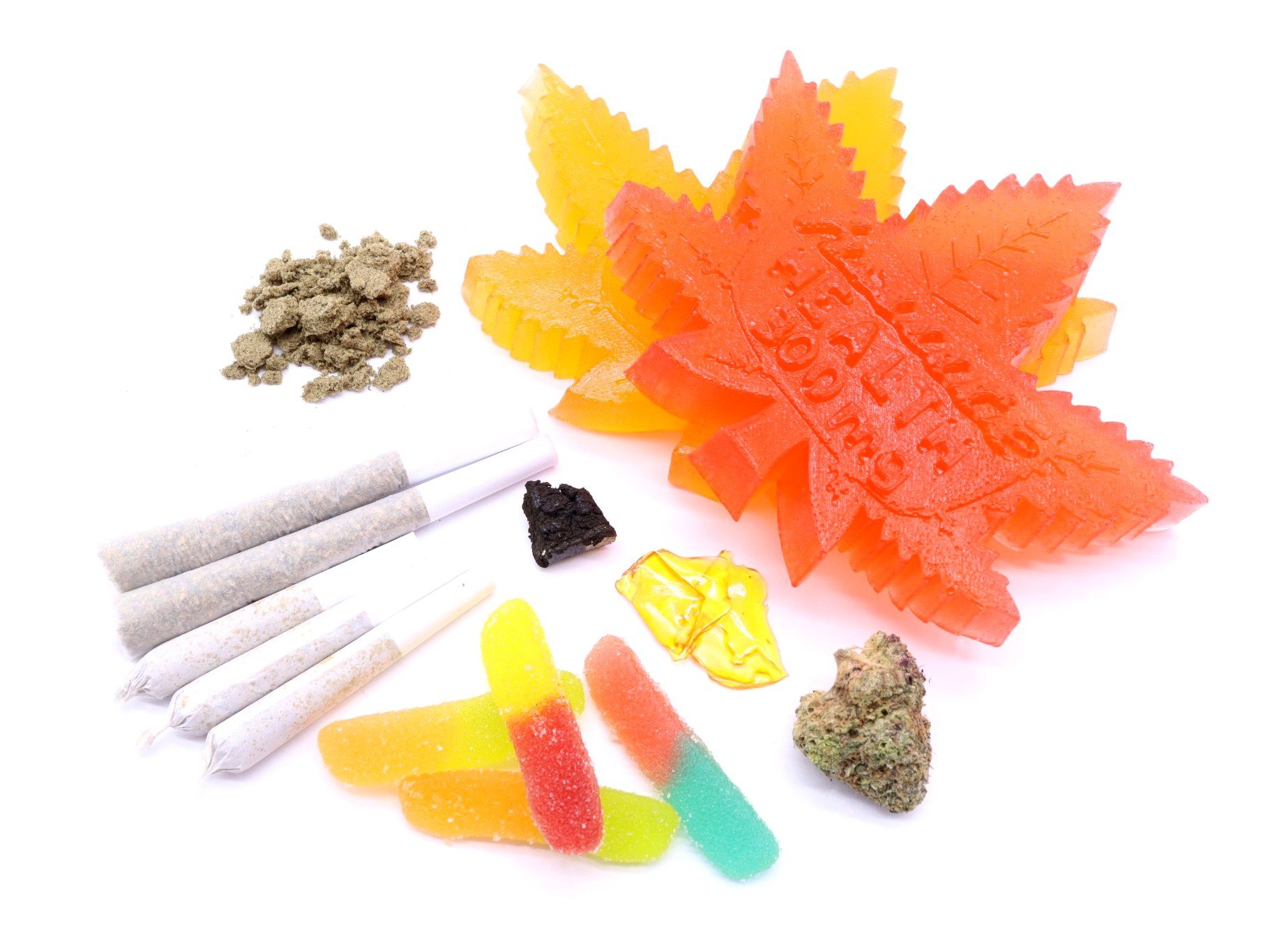What is Delta 9 Cannabis?
Delta 9 cannabis, often simply referred to as Delta-9-tetrahydrocannabinol (Δ9-THC), is the primary psychoactive compound found in cannabis plants. It is the component largely responsible for the euphoric “high” that is associated with cannabis use. Understanding Delta 9’s attributes, effects, and benefits can guide both new and experienced users to make informed decisions about its consumption.
Chemical Composition and Mechanism of Action
Delta 9 THC is a cannabinoid that interacts with the body’s endocannabinoid system, specifically targeting the CB1 receptors predominantly found in the brain and central nervous system. This interaction alters neurotransmitter release in the brain, leading to alterations in mood, perception, and behavior, which are manifest as the psychoactive effects known as the “high.” The chemical formula for THC is C21H30O2, and its structure allows it to mimic the actions of anandamide, a naturally occurring neurotransmitter in the body.
Delta 9 THC vs. Other Cannabinoids
Though Delta 9 THC is perhaps the most well-known cannabinoid, it’s important to note the differences and interactions between it and other cannabinoids found in cannabis, such as cannabidiol (CBD). Unlike THC, CBD is non-psychoactive and is usually sought after for its potential therapeutic benefits without the high. Additionally, Delta 9 THC is distinct from other forms of THC, such as Delta-8-THC, which has a slightly different molecular structure and is reputed to produce milder psychoactive effects.
Benefits of Delta 9 THC
Delta 9 THC is renowned for several potential benefits, both medicinal and
recreational, making it a versatile component of cannabis. Here are some of the most notable benefits:
Medicinal Benefits
- : Delta 9 THC has been used as an analgesic to help relieve chronic pain, which can be particularly beneficial for individuals suffering from conditions like arthritis, fibromyalgia, and multiple sclerosis.
- Appetite Stimulation: Often referred to as the “munchies,” Delta 9 can stimulate appetite, which is useful for patients dealing with appetite loss due to cancer treatments or eating disorders.
- Nausea and Vomiting Relief: It is commonly used to mitigate nausea and vomiting, particularly in patients undergoing chemotherapy or sufferers of motion sickness.
- Neuroprotective Properties: Studies suggest that THC may have properties that protect the brain and could be useful in the treatment and management of neurodegenerative diseases like Alzheimer’s and Parkinson’s disease.
- Mental Health Benefits: While complex and requiring further study, some findings suggest Delta 9 THC may aid in reducing symptoms of anxiety and depression. However, the response can vary from person to person, necessitating careful consideration and consultation with healthcare providers.
How Delta 9 Cannabis Works
Delta 9 THC works by interacting with the body’s endocannabinoid system (ECS), specifically binding to the cannabinoid receptors in the brain and central nervous system. This interaction alters neurotransmitter release and influences various physiological processes such as mood, perception, and appetite. The effects can vary widely depending on the strain, dosage, and method of consumption.
Psychoactive Effects
Delta 9 cannabis is renowned for its psychoactive effects, including euphoria, altered senses, and relaxation. While these effects can be pleasurable, they can also be intense for some users, especially those who are new to cannabis or consume larger doses.
Managing Psychoactive Effects
It’s important for both novice and experienced users to manage their consumption effectively to enjoy Delta 9 THC responsibly. Here are some tips for managing the psychoactive effects:
- Start Low and Go Slow: Especially for new users, starting with a low dose and gradually increasing it allows your body to adjust and helps limit the risk of overwhelming effects.
- Choose the Right Setting: Consuming Delta 9 in a comfortable, familiar environment can enhance the experience. Being in a safe space with trusted friends or in the comfort of your own home can alleviate potential anxiety.
- Stay Hydrated and Well-Nourished: Keeping hydrated and having a snack on hand can prevent dehydration and manage hunger pangs commonly associated with cannabis use.
- Know Your Strain: Different strains of cannabis can lead to different experiences. Sativa strains tend to provide more energetic and euphoric effects while Indica strains are known for their relaxing and sedative properties. Users should choose strains based on their desired effects.
- Understand Your Limits: It’s crucial to pay attention to how your body reacts to different dosages. If you experience uncomfortable symptoms such as paranoia or dizziness
Medical Applications
Delta 9 cannabis offers a range of medical benefits that go beyond its psychoactive effects. Here, we’ll delve into some of the therapeutic advantages that have made it a popular choice for both recreational and medical users.
Pain Management
Delta 9 THC is widely recognized for its potential in managing chronic pain. It interacts with the endocannabinoid system, which plays a significant role in regulating pain and inflammation. Many patients report relief from conditions such as arthritis, migraines, and fibromyalgia, making it a valuable alternative or supplement to traditional pain medications.
Anxiety and Depression
While some users might experience heightened anxiety with high doses of Delta 9, many find that moderate consumption can help alleviate symptoms of anxiety and depression. The cannabinoid can elevate mood and promote relaxation, offering a reprieve for individuals dealing with these mental health challenges. It is crucial, however, for users to find the right balance to avoid exacerbating symptoms.
Appetite Stimulation
One of the well-documented effects of Delta 9 is its ability to stimulate appetite, often referred to as the “munchies.” This effect can be particularly beneficial for patients suffering from conditions that lead to appetite loss, such as cancer treatment (chemotherapy), HIV/AIDS, or eating disorders. By helping patients maintain a healthy weight and nutrient intake, Delta 9 can contribute significantly to improved health outcomes.
Chronic Pain
One of the most well-documented medical benefits of Delta 9 cannabis is its ability to alleviate chronic pain. Whether caused by arthritis, fibromyalgia, or neuropathy, Delta 9 THC interacts with the body’s cannabinoid receptors to modulate pain signals, providing relief without the side effects typically associated with opioids.
Anti-Inflammatory Properties
Delta 9 cannabis possesses potent anti-inflammatory properties, making it an effective option for conditions characterized by inflammation. This includes autoimmune diseases such as rheumatoid arthritis and multiple sclerosis. By reducing inflammation, Delta 9 THC can help alleviate both the symptoms and the underlying causes of discomfort.
Mental Health Benefits
For individuals dealing with mental health challenges such as anxiety and depression, Delta 9 cannabis can offer potential relief. When used in moderation, THC can help elevate mood and reduce feelings of stress and anxiety. However, it is crucial to approach dosage carefully, as excessive use can potentially exacerbate these conditions.
What Canadians Are Saying About Delta 9
Across Canada, the response to Delta 9 cannabis has been largely positive, particularly as the country continues to embrace the legalization and availability of cannabis products. Canadians from various walks of life have shared their experiences, highlighting both the benefits and considerations when incorporating Delta 9 into their wellness routine.
Positive Feedback
Many Canadian users report significant improvements in their quality of life, particularly those managing chronic pain, anxiety, or appetite challenges. They commend Delta 9 for providing a natural alternative to pharmaceuticals, allowing them to enjoy daily activities with reduced discomfort. Some users also appreciate its role in enhancing social situations, helping them feel more at ease and engaged.
Patients undergoing medical treatments that affect their appetite have expressed gratitude for Delta 9’s ability to counteract nausea and stimulate hunger, aiding in maintaining healthy body weight and improving overall well-being. The mental health benefits are also frequently cited, as users describe a tangible relief from symptoms of stress and a noticeable uplift in mood.
Considerations For Prospective Users
While the benefits of Delta 9 cannabis are well-documented, potential users should be aware of certain considerations to ensure a safe and positive experience.
One of the primary factors to consider is determining the correct dosage. Delta 9 THC can have varying effects depending on the individual’s tolerance, metabolism, and previous experience with cannabis. Beginners are advised to start with a low dose and gradually increase it to find their optimal level, thus minimizing potential adverse effects.
Although cannabis is legal in Canada, users must be mindful of the specific regulations in their province or territory concerning possession and consumption. Additionally, many workplaces have policies regarding cannabis use, particularly in professions that require operating heavy machinery or in sectors with zero-tolerance policies. It’s crucial for prospective users to understand their employer’s stance on cannabis to avoid any professional complications.
Prospective users should consider any existing health conditions or medications they are currently taking. Delta 9 THC can interact with certain medications, potentially altering their effectiveness. Consulting with a healthcare professional is recommended to ensure that incorporating Delta 9 into their regimen is safe.
Coping with Anxiety
upliftment for many users, it is essential to approach its consumption with awareness of potential psychological effects. Some individuals may experience anxiety or paranoia, especially with higher doses or if they are predisposed to these conditions. It is advisable for users to be in a comfortable environment when trying Delta 9 for the first time, as stressors from the surroundings can exacerbate negative reactions.
Users prone to anxiety should be cautious and perhaps start with strains known for their calming and soothing effects. Keeping the dose low and gradually increasing it can help mitigate any undesired psychological experiences. Mindfulness techniques, such as controlled breathing or meditation, may also aid in maintaining calmness if anxiety arises.
Delta 9 cannabis may contribute to emotional balance by lifting mood and easing stress, but individuals with a history of mental health disorders should proceed carefully. Some users have reported an increased sense of creativity and a deeper appreciation for activities they enjoy. However, it is important for users to have outlets and support systems in place to handle any overwhelming emotions.
Emotional Balance
While many users appreciate the enhanced focus and deep thinking associated with Delta 9 cannabis, others may find it impairs short-term memory and concentration.
It’s important for users to be mindful of these potential effects and to monitor how Delta 9 cannabis influences their cognitive functions. Some users report that their ability to engage in tasks requiring intense focus is enhanced, leading to a higher level of creativity and problem-solving skills. This can be particularly beneficial for artists or individuals working in dynamic environments where innovation is key.
Conversely, other users may experience challenges such as reduced concentration or fragmented short-term memory. These effects can vary significantly from person to person, dependent on the strain, dosage, and individual physiology. For those who find concentration is hindered, it might be beneficial to use Delta 9 cannabis during periods when high cognitive demands are minimal, perhaps as a tool for relaxation or unwinding after a long day.
To maintain a sense of emotional stability, users may find it helpful to keep a journal of their experiences. Tracking how they feel during and after cannabis use can provide insights into patterns and help them manipulate dosages and strains more effectively to match their emotional needs and lifestyle demands.
FAQ’s
Is Delta 9 legal in Canada?
Delta-9-tetrahydrocannabinol (THC) is the main psychoactive component of cannabis. In Canada, it is legal under specific regulations. The Cannabis Act, enacted on October 17, 2018, allows adults to possess, distribute, and cultivate cannabis legally. This includes products with delta-9 THC.
What is Delta 9 weed?
Delta 9 weed is cannabis with delta-9-tetrahydrocannabinol (delta-9-THC). This compound is the main cause of the “high” from marijuana. Delta-9-THC is a well-known cannabinoid in the cannabis plant. It interacts with the body’s endocannabinoid system. This affects mood, perception, and many other functions. Different cannabis strains have varying levels of delta-9-THC. These levels influence the potency and effects on the user.


